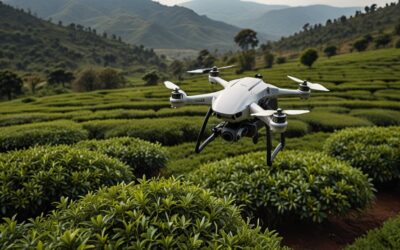Agricultural giants ADM and Bayer have announced the expansion of their regenerative agriculture project in Europe. This collaboration aims to promote sustainable farming practices to significantly reduce carbon emissions, enhance biodiversity, and improve soil health among European farmers.
The initiative began last year with a feasibility study involving oilseed rape farmers across 9,000 hectares in Poland. The study focused on the effects of regenerative agriculture on carbon emissions, with promising results: farms that adopted at least one regenerative practice saw a 15% reduction in carbon emissions compared to those using conventional methods. The analysis indicated that emissions could be reduced by up to 40% with comprehensive adoption of regenerative practices.
Regenerative agriculture, which focuses on restoring soil health and ecosystem balance, includes practices such as minimum tillage, use of cover crops, companion planting, nutrient management, application of organic matter, and crop rotation. The next phase of the project will expand to cover a broader range of crops, including corn, wheat, and barley, and geographically extend across Eastern Europe.
Farmers joining the programme will receive both financial and technical support. ADM will provide compensation for each hectare managed with qualifying regenerative practices, using Bayer’s digital tools in collaboration with Trinity Agtech’s Sandy platform, a scientifically recognised platform for monitoring carbon sequestration and soil health.
Furthermore, participating farmers will benefit from agronomic advice specific to their regional conditions. Specialists will work with farmers to conduct individual on-farm assessments and develop tailored plans. The program also encourages knowledge sharing through field visits and peer learning opportunities.
The feasibility study underscored the importance of considering local conditions and collecting primary data on greenhouse gas emissions and soil health. Farmers expressed positive views on the benefits of regenerative practices. Karol Pietnoczka, a farmer from West Pomerania, highlighted how their carbon footprint has decreased due to these practices. Similarly, Piotr Hulanicki from Warmia-Masuria mentioned the profitability and the importance of balancing regenerative practices with other farming methods.
ADM’s Director of Climate Smart Agriculture Origination, Candy Siekmann, emphasised the significance of the initiative in promoting sustainability and meeting consumer demand for environmentally responsible farming. Siekmann stated, “Our research shows that a significant majority of consumers would be more likely to trust and purchase from retailers and brands that implement regenerative agriculture practices.”
Bayer’s Carbon Business Lead for EMEA, Lionnel Alexandre, echoed these sentiments. Alexandre noted the importance of a collaborative value chain approach, adding, “Bayer’s solution combines digital, advanced science, and agronomy capabilities, while leveraging the best experts and partners across Europe.”
ADM and Bayer aim to foster a more resilient and sustainable agricultural supply chain. In 2023, ADM’s global regenerative agriculture efforts already reached more than 2.8 million acres, with a new target set to 5 million acres by 2025.
This collaboration between ADM and Bayer could serve as a model for large-scale agricultural decarbonisation, linking financial viability for farmers with broader environmental benefits. As the initiative grows, it will provide critical insights into how regenerative agriculture can be scaled across different regions and farming systems in Europe, contributing to a reduction in agriculture’s carbon footprint and promoting long-term sustainability in the sector.




